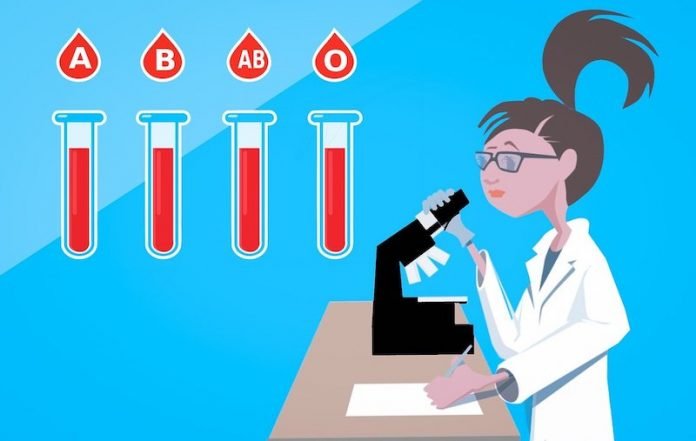
Accumulated evidence worldwide shows that blood type affects the risk of SARS-CoV-2 infection, with blood Type O being less susceptible and non-O blood types more susceptible.
In a new study from the University of Kent, researchers found the most likely explanation is that SARS-CoV-2 infection behaves similarly to a blood transfusion.
They found that SARS-CoV-2 infection behaves similarly to a blood transfusion, and that infected patients are 2–3 times more likely to pass the virus on to someone for whom they are a compatible blood donor.
This explains why Type O people have a lower risk of infection. Just as they reject blood transfusions from non-O types, they may reject virus particles from a patient with non-O blood, thus escaping infection.
However, individuals with Type O blood are universal donors that can give blood to anyone.
Similarly once infected they are also able to infect others of any blood type. Conversely, those with Type A blood (the most common non-O type in the UK) are more likely to catch the virus and less likely to pass it on.
These transmission effects also mean that differences in the frequency of blood types may partly explain variations in epidemic severity worldwide, as countries with a wider diversity of blood groups will present natural barriers to virus circulation.
In the study, the team examined whether it would be useful to prioritize vaccination based on blood type.
Crucially, they discovered that prioritizing either more infectious (Type O) or more vulnerable (Type A) people reduces the overall efficacy of the campaign to reduce infections.
The conclusion is that prioritizing any single blood type for vaccination is worse than choosing at random.
The team says the growing perception that “Type O means you’re low risk” is not a safe conclusion for the broad public.
Being Type O may mean you’re personally slightly safer, but you’re more of a risk to other people whilst you remain unvaccinated.
If you care about COVID, please read studies about common drugs that could help prevent COVID-19 deaths, and people who can fight COVID-19 much better than others.
For more information about health, please see recent studies about men with low testosterone more likely to die from COVID-19, and results showing that people with COVID-19 recover faster with this treatment.
The study is published in Epidemics. One author of the study is Dr. Peter Ellis.
Copyright © 2022 Knowridge Science Report. All rights reserved.



